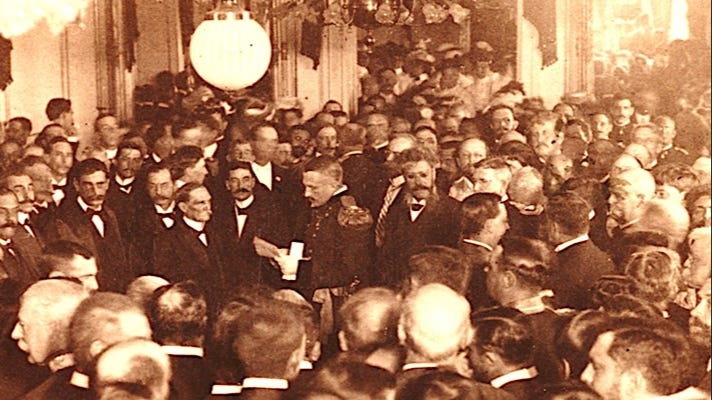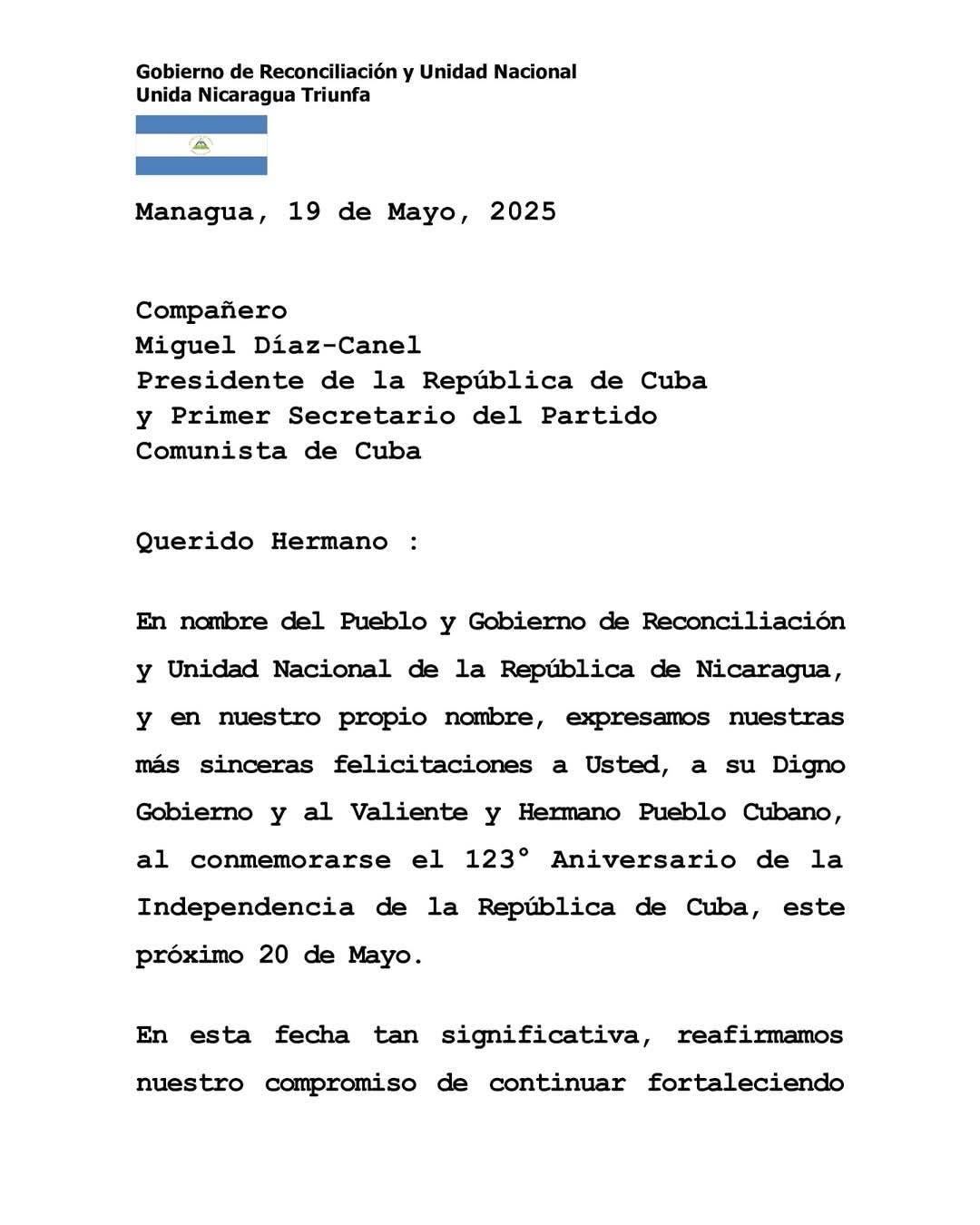Totalitarianism’s quietest victim—history.
Cubans had been celebrating the country's Independence Day since May 20, 1902. But the 1959 revolution banned the holiday and declared a new national day—and erased May 20th from Cuban history.

22 de mayo
Hola y welcome back to CubaCurious.
Even before Fidel Castro officially banned Christmas in 1969—it conflicted with the sugar harvest—the heat was on, and my Catholic parents felt the burn. That’s why they always outdid themselves at Christmastime in the U.S. They celebrated hard what the revolution had stolen but they’d reclaimed here. Freedom, self-determination, the rule of law, lives free from a political ideology that demanded daily payments.
Totalitarianism can do that—take what it wants, who it wants, when it wants. History, literature, culture, language. There are no controls on the state when the state controls everything.
A Cuban news story drove home that point for me this week.

On Tuesday, May 20th, Nicaraguan co-dictators Daniel Ortega and his wife, Rosario Murillo, sent an effusive public message to Cuban president Miguel Díaz Canel congratulating him on the 123rd anniversary of Cuban independence from Spain.
Except celebrating May 20th in any way in Cuba has been a big no-no since Fidel Castro came to power. (Someone should check on Ortega’s chief of staff.)
The joyous parades and festivities that Cubans had held each May 20th were banned after the revolution, because, according to revolutionary thinking, Cuba had been under U.S. control until the revolution “triumphed” in 1959.
It didn’t matter that Cubans had been celebrating their hard-won independence from Spain each May 20th since 1902. It didn’t matter that Cubans had fought two bloody wars against Spain in which more than 240,000 Cubans died, including 173,000 from hunger, to free themselves of Spanish colonial rule. It didn’t matter that the U.S., which had fought with Cubans against Spain in the last of those wars, had peacefully transferred power to the first Cuban government after a three-year occupation following Spain’s surrender in 1898.
All of that history was cleansed from the national discourse, history classes, textbooks, and the nation’s collective memory.
Instead, Castro declared July 26, 1953—the date young rebels under Castro’s leadership attacked a military barracks during Batista’s dictatorship—Cuba’s new national holiday. That attack had failed miserably, with many lives lost on both sides, but it brought Castro into the national conversation for the first time. To give July 26th center stage, May 20th had to be erased.
Like all republics, Cuba would have its highs and lows, but within decades it would become a magnet for immigrants from around the world, doubling its population in a short span of time, and creating one of the hemisphere’s strongest economies, generating twice the per capita GDP of Spain, and on par with Italy’s during the 1950s, as noted in this recent Diario de Cuba article by the Cuban historian and economist, Roberto Álvarez Quiñones
Today, Cuba is the only country in the Americas that does not celebrate the day it won independence from a colonial power. That honor, part of the nation’s heritage and its civic DNA, has been lost, at least while the dictatorship controls the narrative.
May 20,1902, has personal meaning in our family. My great grandfather arrived in Havana Harbor from Galicia, Spain, that day. As he got off the ship, he saw the Cuban flag raised for the first time. He stopped and watched it floating in the breeze. Years later, he told his Cuban children and grandchildren that he’d cheered right along with thousands of jubilant Cubans, a former Spaniard rooting for the new country he hoped to make his own. May 20th was his personal independence day, too.
History may be written by the victors, but victors can’t hold on to power forever. And a country’s collective memory can’t be erased completely. Brave Cubans on the island and some in the diaspora dedicated time this week to mark the birth of the Cuban republic. They shared old photos and their elders’ memories of May 20th celebrations, holding on to their history, honoring Cuba’s stolen past, dreaming of its brighter future.
For a closer look at this topic and can pick your way through Spanish, please see the recent article by Cuban economist and historian Roberto Álvarez Quiñones in Diario de Cuba, which I used as a basis for this essay.
Hasta la semana que viene.
Ana
Cuban Treat of the Week
One of the few Cuban traditions that survived the post-revolution intact is the national anthem, La Bayamesa. It was written by the poet, lawyer, soldier, Pedro Felipe Figueredo, during the Ten Years War against Spain in 1867.
My grandmother and I sang this over and over one night when I drove her in my 1985 Toyota Camry to visit our cousins in New Jersey. She laughed at my version of the lyrics, which made no sense to either of us. I can almost hear Abuela giggling right now.





Very interesting, as usual. Thank you Ana.